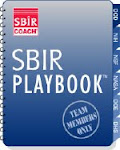You'd think they already had enough time to do this. But no such luck.
We're talking about SBIR Reauthorization, of course. It's not going to happen by the end of the month. Surprise! Hah.
Word is that we'll have another Continuing Resolution that will extend the deadline one more time to September 30th. So we've got two more months of torture to endure.
The SBTC put out this notice on Monday:
The Senate passed a continuing resolution on Friday that would extend the SBIR program another two months. That would make the new expiration date for the SBIR program September 30th, 2009. This CR also needs to pass the House of Representatives to be enacted, and we expect it to pass the House on Tuesday.
Currently, the staff from the House Small Business and Science Committees are in negotiations in conference with the staff from the Senate Small Business Committee to produce a compromise SBIR reauthorization bill that will incorporate elements from both the House and the Senate Reauthorization Bills. We have heard and have reason to believe that both sides are negotiating in good faith, and that no party is acting unreasonably or otherwise sabotaging the process. Because there is an agreement between the staffers in the conference, we won't know what's in the compromise bill until it is finished and released to the public.
The SBTC will be hosting a conference call on Thursday to discuss these developments. Contact Alec Orban if you'd like the call-in number and code.
Thankfully, it appears that our Committee Staffers are not following the Conyers model and are taking time to actually read and analyze the provisions of the two bills.
We'll stay on top of the continuing madness, both with updates here, and on www.SBIRreauthorization.com.
As a side note, one of my clients has been following the DOD's history of topic offerings and has made the following startling observations: "There are 15.6% fewer DoD topics in FY09 than the average over the two previous years. Air Force had a staggering 44% reduction in topic count, MDA had a 23% reduction, and DARPA had a 17% reduction." Anybody have any ideas as to what's driving this? Might it be the uncertainty over reauthorization?
And finally, I'm pleased to report that two Texas editions of the Business Journal featured articles about the SBIR Reauthorization struggle last week. The SBIR Coach was interviewed and quoted in a front page article by the Austin Business Journal, and was featured on the Editorial page in the San Antonio Business Journal.
.





 Join Email List
Join Email List



